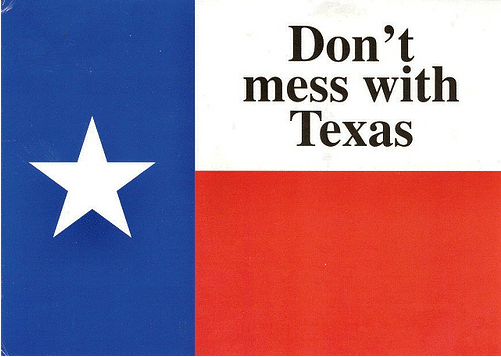In East Texas, where pipelines are more a fact of life than a sight for sore eyes, defenders of property rights are teaming up with environmentalists to oppose TransCanada Corporation’s Keystone XL tar sands pipeline.
TransCanada, a Calgary-based company, is proposing 1,959 miles of pipeline destined to run from the tar sands mines of Hardisty, Alberta, by way of Montana, South Dakota, Nebraska, Kansas, Oklahoma and concluding its journey at Port Arthur, Texas refineries. The Keystone XL pipeline project is promoted as a promising solution for increased oil access and security for the U.S., which imports some 9 million barrels of oil per day.
The Keystone XL pipeline differs from the many other pipelines crisscrossing Texas since it is foreign-owned. TransCanada is still awaiting approval from the State Department to build it.
Perhaps underestimating Texans’ fierce ethic of individual property rights, TransCanada has taken a heavy-handed approach to gathering local support for this project, according to coverage in the Los Angeles Times. In growing numbers, East Texans are becoming unnerved by a foreign company showing up on their properties unannounced, dictating terms and sending out land agents with complicated easement agreements ready for the landowner to sign. (TransCanada isn’t quite so kind in South Dakota, where the company has filed more than a dozen lawsuits against property owners in an effort to condemn land under “eminent domain.”)
At a meeting in Lufkin, Texas, Charles Crouch, a former refinery worker described East Texans’ opposition to the Keystone XL pipeline:
The Environmental Protection Agency (EPA) is also skeptical of the pipeline’s safety and spill-response planning, its anticipated impact on indigenous communities as well as the significant greenhouse gas emissions associated with tar sands crude (82% higher than the average crude processed in the US)[PDF]. Although the pipeline’s environmental impacts are substantial, it is the discontent among property owners who feel their safety and individual property rights are at risk from a foreign-owned company that may become the deciding factor for the State Department.
Indeed, a backlash has begun elsewhere in Oklahoma where one family has already filed suit against TransCanada for trying to condemn part of the family’s farm.
David Daniel, a Texas property owner, describes his situation:
As a result, conservative Texans who may otherwise associate with the Tea Party are forming a curious alliance with environmentalists to block the Keystone pipeline. Ian Davis, senior field organizing manager for the Sierra Club in Houston, explains that environmentalists are seeing the number of people attending their meetings swell of late, building unusual alliances for a common cause. According to Davis:
The question now is whether or not this diverse alliance can send a loud enough message to convince the State Department to cancel the Keystone XL project.
TransCanada ought to pay heed to the Lone Star State’s favorite anti-pollution slogan: “Don’t mess with Texas”.
Subscribe to our newsletter
Stay up to date with DeSmog news and alerts







